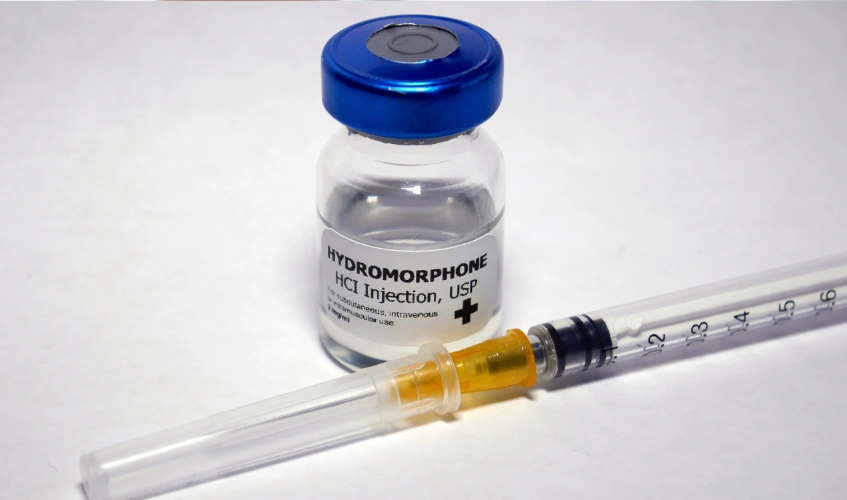The usage of pain management medications can vary depending on the type and severity of pain being experienced. For moderate to severe pain, prescription medications such as opioids (codeine, fentanyl, morphine, and oxycodone) and non-opioid analgesics (tramadol) may be prescribed. Some patients may not respond well to certain medications and they may need to try multiple options before finding one that is effective for them. Apart from modern medication, other alternative pharmacy compounding formulas for pain management include physical therapy, acupuncture and cognitive-behavioral therapy.
What Is Pain Management Treatment?
Pain management treatment is a medical approach to reduce or eliminate the pain caused by injury, surgery or chronic conditions such as arthritis or cancer. Treatment options may include medication, physical therapy, nerve blocks, spinal cord stimulation and surgery. Furthermore, alternative therapies such as acupuncture, massage and yoga may also be used to manage pain. The goal of each pain management treatment is to improve a person’s quality of life and function. A team of healthcare professionals including a pain management specialist may work together to develop an individualized treatment plan.
Why Pain Management Is Important?

Pain management is important because it helps to reduce the suffering caused by pain and improves a person’s quality of life because a continuous pain can have a negative impact on physical, emotional and social well-being and can interfere with daily activities, sleep and overall functioning. Pain management can also help to speed up recovery from an injury or illness and it can also reduce the need for strong medications.
Furthermore, chronic pain can lead to depression, anxiety and a decreased ability to perform daily activities and chronic pain cannot be fully cured. Thus, by managing pain, people can regain control of their lives and improve their overall functioning fighting with a chronic pain.
Pain Management Medication Listing: Strongest to Weakest?
Here are some of the best pain medications that you shouldconsider.
Fentanyl

Fentanyl is a powerful synthetic opioid pain medication. It is similar to other opioids, but it is 50 to 100 times more potent. Fentanyl is typically used to treat severe pain caused by cancer or surgery. It is also used to treat chronic pain in patients who have developed a tolerance to other opioids. It is typically administered via injection, transdermal patch or sublingual tablet. Beware! Fentanyl is highly addictive and it can cause serious side effects including respiratory depression, drowsiness and confusion.
Oxycodone

Oxycodone is a prescription opioid pain medication and it is the most popular medication for neuropathic pain. It is usually prescribed for moderate to severe pain and can be taken orally in the form of tablets or capsules. Oxycodone can be addictive and has a risk of misuse, so it should only be taken under the guidance of a healthcare provider and in accordance with their instructions.
Hydromorphone

Hydromorphone is a powerful opioid pain medication that is used to treat moderate to severe pain. It works by binding to opioid receptors in the brain and spinal cord reducing the perception of pain. Hydromorphone is available in oral and inject-able forms and it is often used in a hospital setting. It is a controlled substance that is monitored by healthcare providers.
Morphine

Morphine is based on common types of pain management medicines. It is usually used to treat moderate to severe pain, such as pain caused by surgery, cancer or injury. Morphine works by binding to opioid receptors which lower the perception of pain. It is typically administered intravenously by injection or by mouth.
Tramadol

Tramadol is an opioid analgesic used to treat moderate to severe pain conditions. It works by binding to the mu-opioid receptor in the brain and spinal cord which reduces the perception of pain. Tramadol is available in both immediate-release and extended-release formulations and it may be used alone or in combination with other pain medications. You can also use it as a compound pain cream for effective use.
What Is the Safest Pain Medication for Long-Term Use?
The safety of long-term pain medication depends on several factors including the specific medication, the dosage and the individual’s medical history. Some medications that are considered relatively safe for long-term use include acetaminophen (Tylenol), nonsteroidal anti-inflammatory drugs (NSAIDs), and certain types of antidepressants such as tricyclic antidepressants and serotonin-norepinephrine reuptake inhibitors (SNRIs). It is always important to consult with a healthcare professional before starting or continuing any medication, especially for long-term use.
Final Words
Pain medications also known as analgesics are necessary because they help to alleviate pain and discomfort caused by injury, surgery or chronic conditions such as arthritis and cancer. They work by blocking pain signals from reaching the brain or by altering the way the brain perceives pain. Pain medications can also help to reduce inflammation and improve sleep, allowing people to function more normally and improve their quality of life. Furthermore, pain management medications can aid in the recovery process by making it possible for people to participate in physical therapy and other forms of treatment. Without pain relief, the recovery process would be much slower and more difficult for patients. Just try to trust the authentic pharmacy for best pain management in Kensington, MD.


